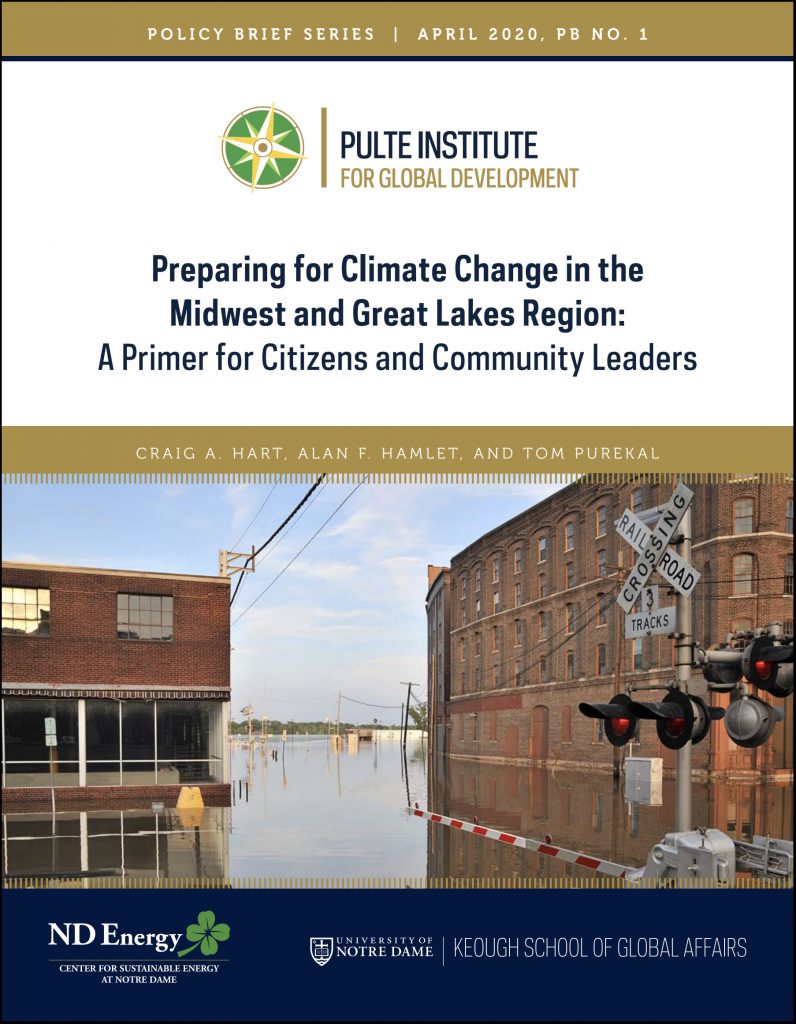Preparing for Climate Change in the Midwest and Great Lakes Region: A Primer for Citizens and Community Leaders
Authors: Craig A. Hart, Alan Hamlet, Tom Purekal
Publication info: Pulte Institute, April 2020
Full text: Read this brief at curate.nd.edu
Abstract
Climate change has been slow to enter the public dialogue in the Midwest, but this is changing as local residents are experiencing more volatile weather, extreme temperatures, floods, changing growing seasons, and fewer snow days. The past several decades have witnessed increasingly intense weather extremes, resulting in costly damage throughout the region. In 2019, following a winter arctic air outbreak (“polar vortex”) that delivered near-record low temperatures in many areas (for example, South Bend reached -20°F without wind chill), the Midwest region suffered a spring season of extremely heavy rainfall and flooding which delayed agricultural planting, only to be followed by wide-spread drought in late summer.
These climatic changes are expected to severely adversely affect the Midwest’s agricultural sector. This brief offers three recommendations to limit the damage from warming in the coming decades: reduce greenhouse gas emissions, adapt infrastructure and human systems to emerging risks posed by a rapidly evolving climate, and scale up disaster management capabilities in order to respond to increasing risk of weather extremes.
Recommended citation
Hart, Craig A., Alan Hamlet, and Tom Purekal. Preparing for Climate Change in the Midwest and Great Lakes Region: A Primer for Citizens and Community Leaders. Notre Dame, IN: Keough School of Global Affairs/Pulte Institute for Global Development, 2020. https://doi.org/10.7274/r0-9xqv-2671
